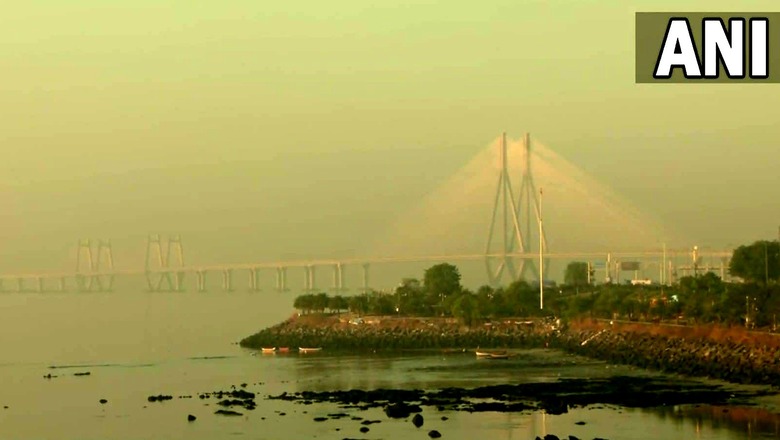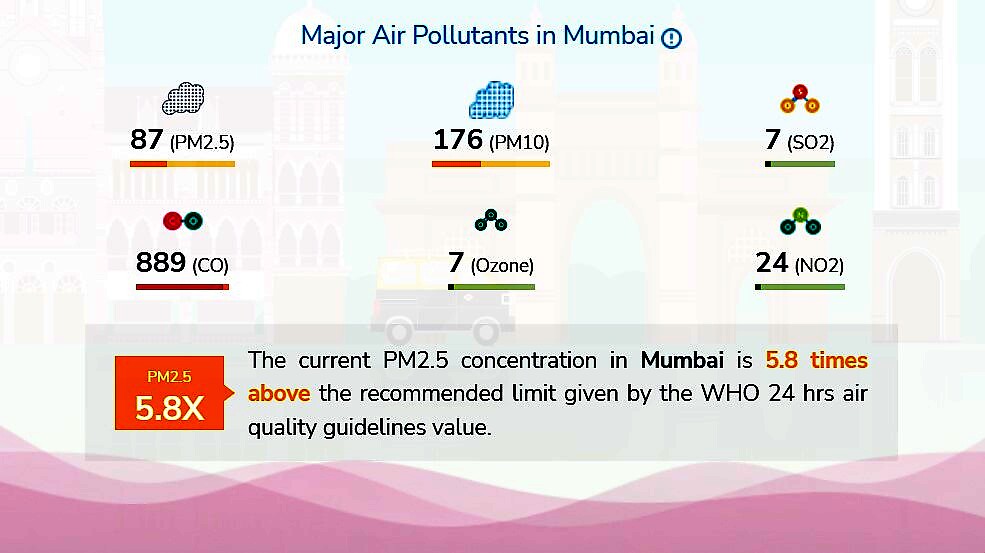
views
Mumbai’s deteriorating air quality has been in news since week. This week too the situation hasn’t improved as the residents continue to breathe more polluted air than even Delhiites. The only saving grace is that the overall AQI is in the ‘poor’ category, as compared to last week’s ‘very poor’ air.
According to the System of Air Quality Forecasting and Research (SAFAR), the financial capital a day recorded an overall Air Quality Index of 225 that falls in the ‘poor’ category, while Delhi recorded a ‘moderate’ AQI of 152.
A report in Hindustan Times, however, stated that in the daily 4 pm bulletin by the Central Pollution Control Board (CPCB) Mumbai’s air was at 168 (moderate) and Delhi at 218 (poor). The discrepancy was on account of the fact that SAFAR has monitoring stations at nine locations in the city while CPCB calculates the overall AQI based on 18 locations. Delhi, on the other hand, has 36 air quality monitoring stations.
On Tuesday too, the city recorded a ‘poor’ air quality. From Bandra to Borivali, Malad and even neighbouring region of Vasai, witnessed ‘poor’ air. At 11:30 am, Nerul recorded ‘hazardous’ air quality measuring 410 on index.

Mumbai’s poor AQI had figured in the talks between G20 Sherpa Amitabh Kant and municipal commissioner I S Chahal some days ago. While Chahal blamed refineries and the Tata Power plant for major pollution, Kant on Monday said that the emission of sulphur-dioxide refineries was within prescribed norms. Kant, who also spoke to Union petroleum secretary M M Kutty, said that two refineries in the Mahul area would have to ensure that they reduced sulphur emissions.
Experts have warned that Mumbai could experience more days with ‘poor’ and ‘very poor’ air quality during winter in the coming years. A temporary silver lining could be in the form of Cyclone ‘Mandous’ aftermath with wind speed picking up over Mumbai that could result in a dip in pollutants in the coming days.
In the past 40 days from November 1-December 10, Mumbai had 22 days of ‘poor’ category for air quality and for four days (December 5-8) it was in the ‘very poor’ range.
During the same period in 2021, the number of ‘poor’ days was only six with no ‘very poor’ air days indicating a sharp decline in 2022.
Last year, during the period there were 18 days when PM-2.5 was within the permissible limits but in 2022 there was only one day when PM-2.5 was in the permissible range.
In 2022, the 18 ‘poor’ and four ‘very poor’ air quality days the worst-affected were Malad, Chembur and Mazagaon, while Borivali, Navi Mumbai and Worli recorded the cleanest air during the period (November 1 – December 10).
Mumbai’s fresh air continues to be smothered by the transport sector (30 per cent), biofuels or residential emissions (20), industries (18), windblown dust (15) and the rest (17) related to weather factors including sea-salt, as per SAFAR study.
Waatavaran Foundation’s founder Bhagwan Kesbhat said that the Maharashtra government and municipal authorities must develop a Graded Response Action Plan (GRAP) that can set in motion a series of emergency measures whenever the air quality hits a certain threshold, besides health advisories and controlling pollution at the sources.
Convenor of Awaaz Foundation Sumaira Abdulali said the BMC has failed to issue health advisories through social media as was done during the Covid-19 pandemic so people can take precautions to safeguard their health on an individual and institutional level.
Anjal Prakash of Indian School of Business said that the city’s air quality has dipped due to the prevailing global meteorological conditions called the El Nino Southern Oscillation with an abnormal warming of the tropical Pacific Ocean that disrupts global atmospheric circulation and in turn influences temperatures and precipitation.
Dr Harshal R Salve of AIIMS urged that regional issues pertaining to poor air quality must be met with regional answers, plus quick-fixes like using N95 masks and putting out open fires, etc.
(With inputs from IANS)
Read all the Latest India News here




















Comments
0 comment